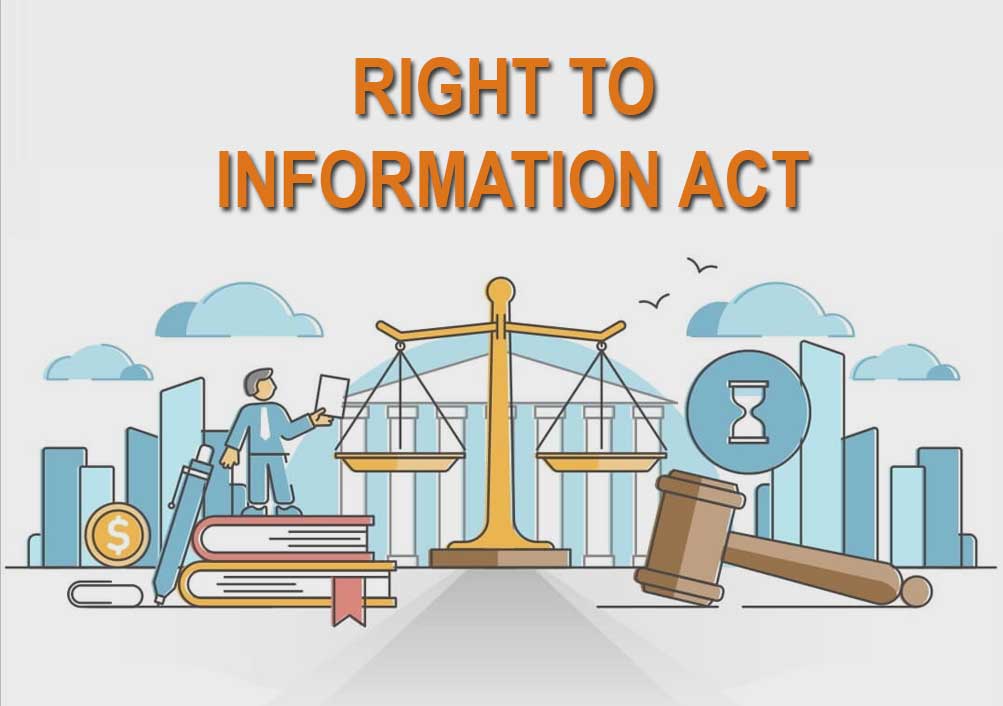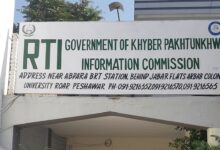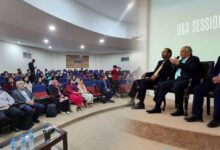RTI Practitioner Aamir Baloch Challenges Section 7 of Federal RTI Act in Balochistan High Court

In a major development for transparency and citizens’ right to know, Karachi-based advocate and Right to Information (RTI) activist Aamir Baloch has filed a constitutional petition in the Balochistan High Court challenging Section 7 of the Right of Access to Information Act, 2017, arguing that it is unconstitutional and restricts public access to government records.
The case, registered as Constitution Petition No. D-183/2024, has been filed under Article 199 of the Constitution of Pakistan. The respondents named in the petition include the Ministry of Law and Justice, the Ministry of Information and Broadcasting, and the Pakistan Information Commission (PIC) — the federal body responsible for enforcing the RTI law.
What the Petition Is About
Advocate Baloch, who hails from Gwadar and is currently based in Karachi, has long worked on RTI cases and public-interest petitions. In his latest petition, he argues that Section 7 of the federal RTI Act gives unreasonable and blanket powers to government departments to withhold information from citizens, directly violating Article 19-A of the Constitution, which guarantees every citizen the “right to have access to information in all matters of public importance, subject to regulation and reasonable restrictions imposed by law.”
He claims that Parliament overstepped its constitutional limits by inserting Section 7, which allows public bodies to exclude whole categories of records from disclosure, rather than applying a case-by-case test of reasonableness.
“The Constitution allows only reasonable restrictions — not blanket secrecy. Section 7 gives government departments a free hand to deny information,” the petition states.
What Section 7 Says
Section 7 of the Right of Access to Information Act, 2017 is titled “Exclusion of Certain Records.” It prevents disclosure of several types of government records, including:
- Notes and internal files before a final decision is made
- Minutes of official meetings
- Intermediary opinions and recommendations
- Bank and financial institution records
- Defence-related documents
- Records declared classified by a minister
- Personal privacy records
- Private documents shared with public bodies on the condition of confidentiality
Advocate Baloch argues that these exclusions are too broad and absolute, allowing the government to deny information without justifying why disclosure would cause harm.
He says that this goes against the spirit of Article 19-A, which only allows restrictions that are “reasonable” and necessary for legitimate interests such as national security or privacy — not for administrative convenience or political secrecy.
How It Affects Citizens
According to the petition, Section 7 has become a major obstacle for journalists, researchers, and citizens who seek information on public issues. Mr Baloch points out that many federal departments routinely use this section to reject information requests without any valid reason.
He gives examples where citizens were denied information about environmental problems like smog, or about education policies under Article 25-A, because officials claimed the records were “internal” or “not finalized.”
“Citizens are left in the dark on issues that directly affect them,” he writes, adding that this secrecy weakens accountability and encourages corruption.
Comparison With Provincial Laws
The petition compares the federal RTI law with similar laws passed by provincial assemblies — including the Punjab Transparency and Right to Information Act 2013, the Khyber Pakhtunkhwa RTI Act 2013, the Sindh Transparency and RTI Act 2016, and the Balochistan RTI Act 2021.
Mr Baloch notes that all these provincial laws follow a harm-based model: information can only be withheld if its release is proven to cause harm to national security, privacy, or another protected interest. None of them include blanket exclusions like those in Section 7 of the federal Act.
He also cites examples from India, Sri Lanka, Nepal, and Bangladesh, where RTI laws require public bodies to apply a “harm test” before denying access to records.
Why Section 7 Is Considered Unconstitutional
In his petition, Advocate Baloch makes several key legal arguments:
- Parliament has no power to impose absolute bans on disclosure because Article 19-A allows only “reasonable restrictions.”
- Section 7 duplicates Section 16 of the same Act, which already lists valid exemptions such as national security and privacy.
- Ministerial discretion is dangerous: Section 7(f) allows a minister to classify any record as secret — even if it concerns corruption — creating a conflict of interest.
- Privacy cannot be absolute: While protecting personal information is important, there must be balance when information involves public officials or matters of public interest.
- Public accountability suffers: The repeated misuse of Section 7 prevents citizens from monitoring governance and public spending.
He argues that these issues make Section 7 inconsistent with Articles 8, 10-A, and 19-A of the Constitution, which guarantee fundamental rights and due process.
What the Petitioner Wants
Mr Baloch has asked the Balochistan High Court to:
- Declare Section 7 of the RTI Act unconstitutional and void;
- Order the government to amend the Act so that only reasonable, harm-based restrictions apply; and
- Direct the Pakistan Information Commission and federal ministries to ensure that citizens can access information without arbitrary denial.
As an alternative, he has requested that the Court direct Parliament to bring the law into line with the Constitution.
Legal Precedents and Powers of the Court
The petition cites several Supreme Court judgments (including PLD 2005 SC 193, PLD 1999 SC 502, PLD 2012 SC 923, and 2013 SCMR 6) to establish that High Courts have the power under Article 199 to strike down any law that violates fundamental rights or gives the executive unchecked discretion.
Potential Impact
If the Balochistan High Court rules in favour of the petitioner, it could set a nationwide precedent for greater transparency at the federal level. Such a verdict may require federal ministries to justify every denial of information and could limit their ability to classify records without proper cause.
Experts say the case could also influence ongoing RTI appeals before the Pakistan Information Commission and prompt legislative reforms to bring Pakistan’s federal law closer to international standards.
Why This Case Matters
The petition has drawn interest from journalists, lawyers, and civil-society groups who have long demanded stronger access-to-information laws. They see it as an important step in strengthening public accountability and promoting openness in governance.
By challenging Section 7, Advocate Aamir Baloch seeks to ensure that the right to information — guaranteed by the Constitution — becomes a living reality for every citizen, not just a promise on paper.
If the court agrees, it could mark a turning point for transparency in Pakistan’s federal institutions — one that may redefine the balance between state secrecy and the people’s right to know.






